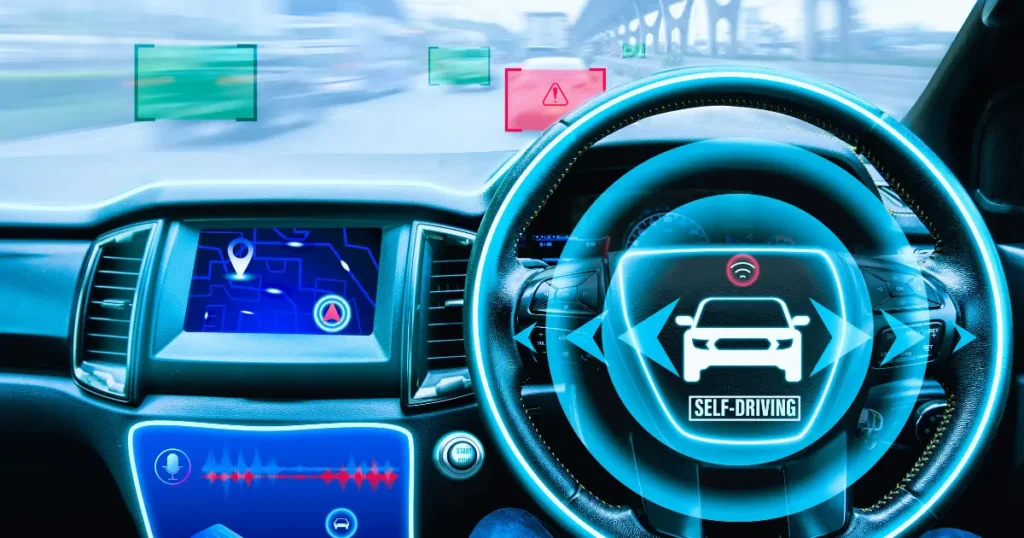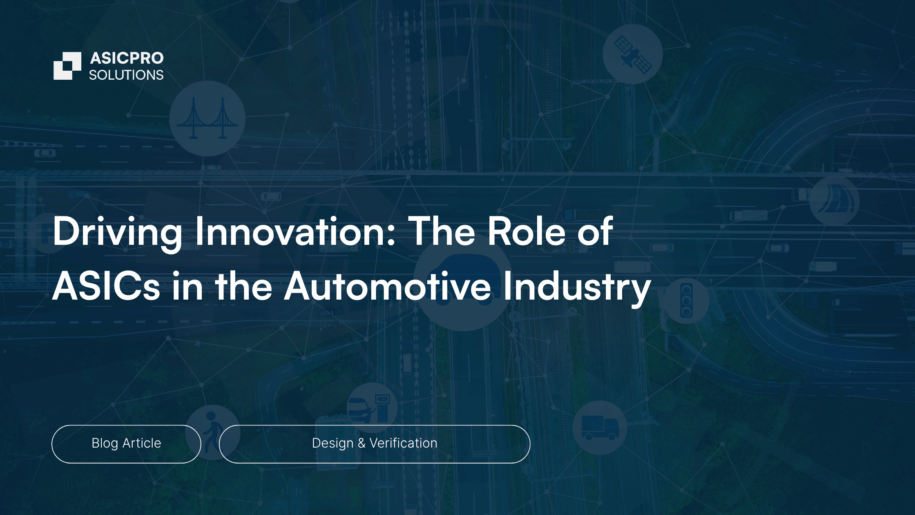From electric vehicles (EVs) to advanced driver-assistance systems (ADAS), today’s vehicles are complex, highly integrated machines that a vast number of individual components – many of which now depend on custom silicon to function.
As the automotive industry continues to move towards electrification, automation and software-defined platforms, the importance of application-specific integrated circuits (ASICs) continues to grow. These custom chips are essential to enabling safe, efficient and intelligent mobility – powering everything from real-time sensor processing to secure vehicle-to-everything (V2X) communication.
What are ASICs?

ASICs are semiconductor chips purpose-built to execute a defined set of functions with maximum efficiency. Unlike general-purpose processors such as CPUs or microcontrollers, which are designed to handle a wide variety of tasks, ASICs are optimized for a particular application or system.
In automotive design, their application-specific nature offers several distinct advantages:
- Optimized Performance: ASICs can meet real-time operational requirements in safety-critical domains, such as braking, steering and collision avoidance
- Low Power Consumption: Tailored logic reduces power usage – vital for electric vehicles (EVs) and software-defined architectures
- Compact Size & Integration: High functionality density enables multiple subsystems to be consolidated into a single chip, reducing system complexity
- Reliability: Fixed-function hardware aims to ensure deterministic behaviour, essential for applications where safety and timing are non-negotiable
Why does the Automotive Industry need ASICs?

Modern vehicles require embedded systems that are reliable, energy-efficient and capable of operating in real time under harsh conditions. While general-purpose components may be suitable for lower-priority systems, mission-critical systems often require the performance and precision that only ASICs can deliver.
Custom silicon enables tailored solutions across a wide range of automotive functions, including:
- ADAS: ASICs support real-time sensor fusion, object detection and decision-making for advanced driver-assistance systems
- EV Power Management: Power control, battery monitoring and motor drive subsystems rely on ASICs for optimal performance and thermal management
- In-vehicle Experience: Custom chips are used to manage infotainment, digital cockpit displays and audio-visual processing, delivering responsive, low-latency user experiences
- V2X Communication: ASICs provide the secure connectivity required for vehicle-to-vehicle and vehicle-to-infrastructure communication
In each of these domains, ASICs support critical objectives around safety, performance, IP protection and long-term system reliability.
Automotive Functional Safety and Industry Standards

To function safely over the lifetime of a vehicle, automotive ASICs must meet rigorous functional safety and quality standards. Two key industry benchmarks include:
- ISO 26262: This international functional safety standard applies to all electrical and electronic systems in road vehicles. It provides clear safety guidelines for OEMs and suppliers and aims to reduce the risks associated with the design and development of electronic automotive systems.
- AEQ-100: A qualification standard for integrated circuits developed by the Automotive Electronics Council (AEC). This standard defines stress testing protocols to validate reliability under extended temperature ranges, voltage conditions and mechanical stress.
Meeting these standards requires comprehensive design verification, fault management and long-term reliability analysis – areas where specialist ASIC design teams bring critical value.
ASICs: Powering the Future of Automotive Innovation

As OEMs and Tier 1 suppliers adopt centralized vehicle architectures and software-defined control systems, ASICs are playing a central role in shaping future mobility. They enable:
- Application-specific compute acceleration for AI, sensor processing and data routing
- Scalable hardware-software integration for modular development across platforms
- System consolidation to reduce weight, power consumption and cost
- Compliance with evolving safety and quality standards
With increasing complexity and tighter regulatory oversight, custom silicon is becoming a strategic enabler – helping manufacturers achieve technical, commercial and compliance goals with greater precision.
The Road Ahead: Future of Automotive ASICs

As vehicles continue to evolve into fully connected, autonomous and electrified platforms, automotive ASICs are expected to advance along several fronts:
- Edge AI acceleration to support real-time perception and decision-making
- Chiplet-based modular architectures for scalability and faster development cycles
- Increased integration of safety mechanisms to align with higher ASIL (Automotive Safety Integrity Level) targets
- Design-for-reliability methodologies that extend the operational life of systems in harsh conditions
Custom silicon is no longer just a performance differentiator – it is becoming an essential enabler of innovation, compliance and competitive advantage in the automotive space.
At AsicPro, we deliver high-performance, application-specific silicon solutions tailored to the unique demands of automotive systems. Our team brings brings deep expertise in ASIC design, functional safety and verification – ensuring your custom chip meets technical requirements and regulatory standards alike. Ready to discuss your next automotive ASIC project? Get in touch to learn more about how we can support your next automotive ASIC project.

